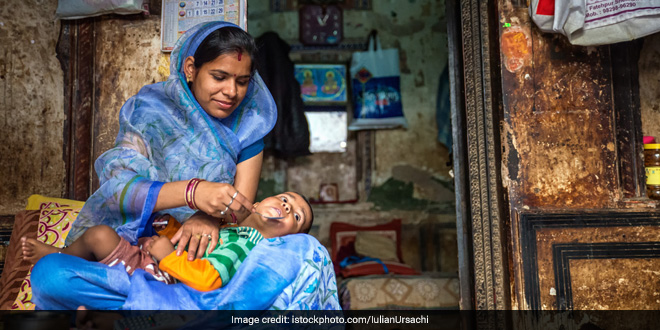New Delhi: India has made some progress in reducing child malnutrition, but a lot needs to be done, according to the first Comprehensive National Nutrition Survey (CNNS) survey, released recently. Government schemes have been able to prevent Vitamin A and iodine deficiency among children aged 1-4 years. But, according to the UNICEF, the rising childhood obesity is adding to the growing threat of non-communicable diseases, like diabetes, among school-aged children and adolescents.
The Ministry of Health and Family Welfare released the result of the CNNS, conducted during 2016-18 in 30 states/Union Territories with technical support of the UNICEF.
It’s one of the largest micronutrient surveys conducted across the globe covering anthropometric assessments of 1,12,000 children aged 0-19 years. It also included over 51,000 biological samples on children’s micronutrient status and risk factors for non-communicable diseases.
Yasmin Ali Haque, UNICEF India Country Representative, said,
The CNNS is an amazing wealth of information. It’s time for evidence-driven policy and action to save children and help them fulfil their potentials.
The Poshan Abhiyaan 2018-22 has set goals to reduce child under-nutrition (stunting and underweight) and low birth weight by 2 per cent a year, and anaemia across age groups by 3 per cent, and create a mass movement for good nutrition in the country.
The CNNS figures reveal that school-age children and adolescents are still at risk of malnutrition and a lot of ground still needs to be covered.
According to the UNICEF, the high number of anaemic children, adolescents and women remains a concern for India. Studies suggest poor eating habits (not eating enough iron and vitamin C-rich foods, including fruits and vegetables) and limited access to healthcare are main causes of anaemia.
Also Read: Nutrition Surveillance System Established In Six States: National Institute Of Nutrition
According to the CNNS, anaemia affects young children and female adolescents the most. Anaemia was significantly higher at 41 per cent in children aged 1-4 years against other age groups. At 40 per cent, prevalence of anaemia in female adolescents, aged 10-19 years, was two times higher than male adolescents (18 per cent).
According to the study, one in four adolescents, aged 10-19 years, remains thin for their age, and 5 per cent of adolescents, aged 10-19 years, are overweight or obese.




























